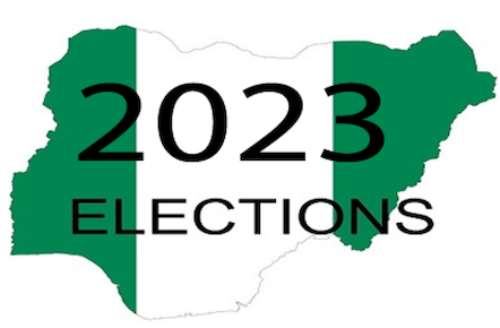
The commission, therefore, said it would ensure that women exercise their franchise in the general elections.
INEC Deputy Director (Civil Society Organisations Division), Ndidi Okafor, stated these during the inauguration of the Roadmap to Advance Gender Equality in Political Leadership in Nigeria, organized by International Republican Institute, Women’s Democracy Network and a civil society organisation, ElectHer.
According to her, INEC as an electoral umpire takes gender issues seriously and we have been working hard to ensure that no gender was suppressed when it comes to voting and aspiration to be voted for.
“We are committed to mainstreaming gender issues in elections. We are committed to ensuring that women vote and are voted for. Women are intellectually healthy. Make use of the best information from this programme and participate in the elections. Support one another”, Okafor said.
The Programme Officer of WDI in IRI, Bryant Fiesta, said many women leaders and CSOs have expressed fear about the likelihood of insecurity affecting women’s participation in the forthcoming election.
He, however, expressed confidence that the female candidates would perform well at the poll, adding that the roadmap to ensure gender equity was aimed at ensuring that “we bring down structures that prevent women from advancing in politics.”
Fiesta said, “I have had a chance since I arrived here in Abuja earlier this week, to sit down with women leaders, civil society representatives, as well as a people running for election.
“We have found that they are very much committed to running effective campaigns. Now, there are some concerns about insecurity and the peculiarity of the policy around the Naira and fuel scarcity. But they’re committed and we’ve seen that they have effectively mobilized party agents at the local and grassroots level to support them and come out for them when the poll opens on February 25.”
The CEO/Founder of ElectHER, Ibijoke Faborode, raised concern over the low participation and representation of women as candidates in the 2023 elections, describing it as unacceptable.
She, however, said her organisation would continue to work at ensuring total implementation of the roadmap and ensure that women in Nigeria participate actively in politics.
Faborode said, “As we know that the numbers right now are not great, women are being marginalized, and it really serves no one. However, I don’t think everyone knows that and I feel a lot of people in Nigeria are operating from a place of ignorance because sometimes, people get angry when we advocate for women. But we should all know that women’s issues are not women’s issues. It’s a national issue and a global one at that.
“This is because in the population and economy, women are all factored in. During COVID, a lot of women were affected. A lot of women were victims of gender-based violence. So, when we talk about women’s issues, we talk about the protection of human life and about our existence and survival.
“I look forward to a Nigeria where when we’re talking about women issues, we just don’t have women in the room. We have men who are male allies. Just now, I spoke about the correlation between women’s issues and the current issues we’re facing as a country like instability, inflation, foreign exchange, and reduction in foreign direct investment, all those things are linked to the lack of equity.
“This is because when we don’t have the right people that reflect society, and when our policies are not shaped in a way where we protect our social structures, we’re going to have issues like this.”
The Resident Programme Director, IRI Nigeria, Santiago Stocker, said the institute have been working to empower women to participate in politics, adding that they will ensure a structural change.
“Democracy is for all human beings, both men and women. This roadmap is to effectively advance gender equality in political leadership in Nigeria”, he said.





